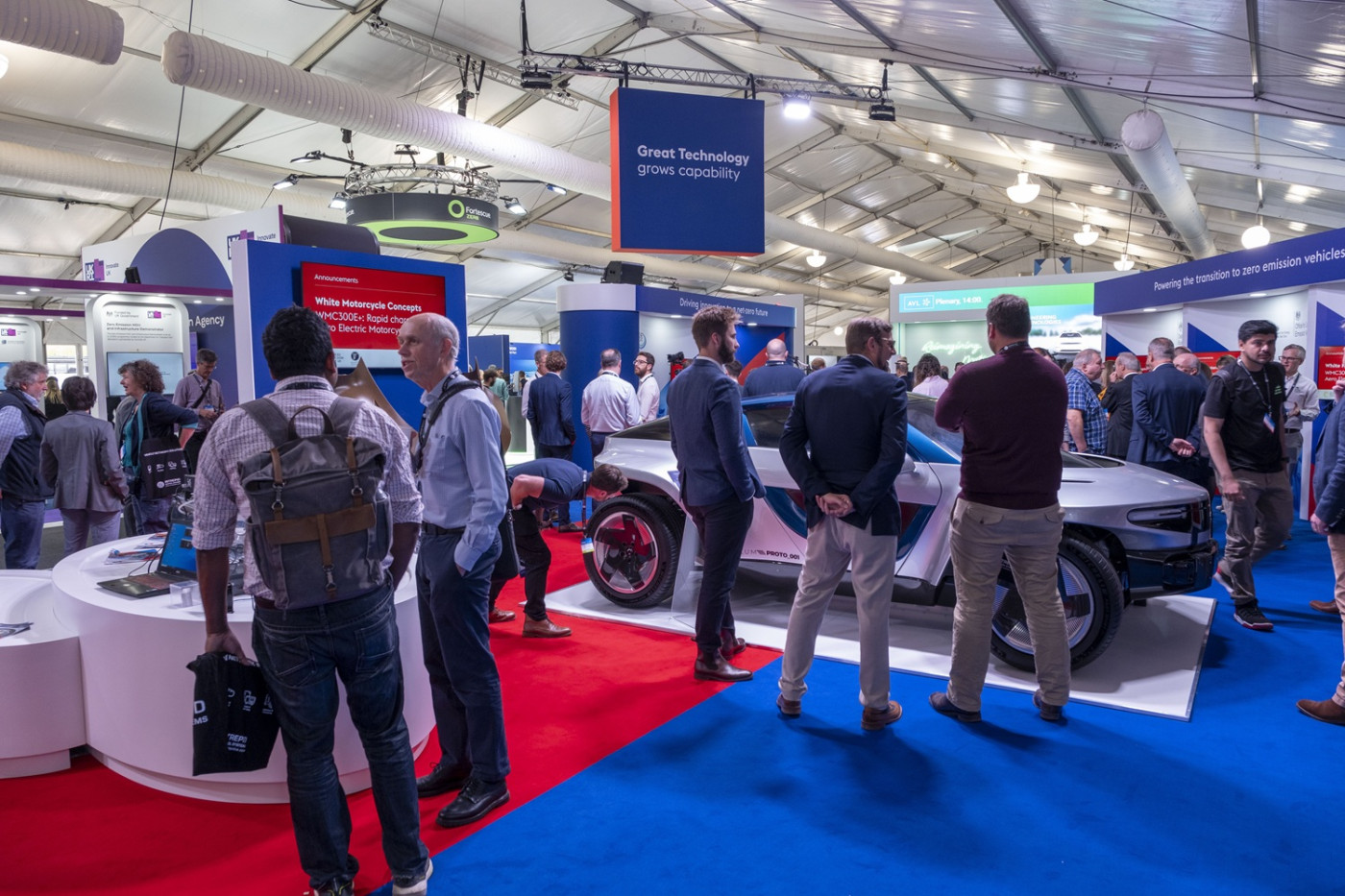Cenex Expo Event to feature major Government programme updates

Manufacturing in the UK is poised for growth. Cenex Expo and its supporting partners, including the Department for Business and Trade (DBT), the Advanced Propulsion Centre UK (APC), the Centre for Connected and Autonomous Vehicles (CCAV) and Zenzic are at the sharp end of how Zero Emission Vehicle (ZEV) technologies and Connected Automated Mobility (CAM) are primed to drive supply chain growth in the automotive sector, with technology-transfer opportunities into agricultural, construction equipment, aerospace, marine and defence markets.
Focused on market acceleration, the £2.5 billion commitment from the UK Government for the automotive industry, coupled with further Industrial Strategy announcements, serves as a timely reminder of how the UK is positioning itself to benefit from high-growth sectors like advanced manufacturing. From advances in the semiconductor sector to re-energising the UK’s manufacturing capabilities to enhance supply chain scalability and resilience, the sense of urgency is palpable.
Nothing captures this sense of urgency better than the annual Cenex Expo hosted at UTAC Millbrook each September. Attended by industry players, government officials, investors and inventors, for close to 20 years, it has provided a springboard for manufacturers across the entire supply chain to get in front of decision makers.
Putting into context just how integral Net Zero, CAM and now cross-sector technology transfer is to this journey, Robert Evans, CEO of Cenex, comments: “Cenex Expo has always been where pioneering innovation meets real-world application, from early-stage R&D through to supply chain investment and market deployment at scale. This year’s event takes on even greater significance as we mark ten years since the Paris Agreement and provides the first large scale industry event for the Net Zero and Connected Automated Mobility innovation community to meet following the launch of the UK’s Advanced Manufacturing Sector plan and the new Drive 35 programme for automotive innovation and manufacturing supply chain development.”
Shaping the UK’s Automotive Industrial Strategy
Drive 35, part of the UK’s Industrial Strategy, commits £2 billion in capital and R&D funding through to 2030, with an additional £500 million extending support to 2035. The programme aims to accelerate the development and commercial scale-up of strategic vehicle technologies, strengthening domestic supply chains and supporting a globally competitive battery sector.
This investment sits within the broader ambitions of the UK’s Advanced Manufacturing Sector Plan, which sets out a vision for the country to lead in zero emission vehicles, establish Europe’s first commercial market for self-driving services, and unlock dual-use innovation across sectors such as defence, AI, and energy systems.
A strong focus is placed on building end-to-end capability in the battery supply chain, from chemistry to capacity, and ensuring that UK industry can meet both domestic demand and global opportunity.
These priorities will be centre stage at this year’s Cenex Expo. The seminar programme will bring together policymakers, industry leaders, and sector experts to explore how these strategies will be delivered in practice. Sessions will cover a wide range of key themes — including Drive 35, battery scale-up, V2X, connected and automated mobility, automotive electronics, and software-defined vehicles.
Alongside the seminars, the exhibition will showcase enabling technologies and foster the collaboration and commercial partnerships needed to deliver on the Automotive Manufacturing Sector Plan — helping to translate strategy into on-the-ground innovation and scale-up.
Making the CAM connections
“Collaboration as ever will be the conduit to move CAM from ideas to commercialisation”, notes Robert. With pilot studies rapidly moving into maturity stage, the commercial market pull of CAM is clearly moving forward - from early deployments in logistics applications on private roads through to pilots that are helping define how driverless vehicles will be deployed at scale on public roads for shared passenger transport and ride-hailing robo-taxi services.
News announced by the government during London Tech Week that pilots of self-driving vehicles are being fast tracked underpins this new level of urgency. Bringing forward timelines to Spring 2026 marks a pivotal shift in commercial self-driving vehicle pilots.
At the announcement, transport secretary Heidi Alexander said: “The future of transport is arriving. Self-driving cars could bring jobs, investment, and the opportunity for the UK to be among the world-leaders in new technology.”
Commenting on the pathway to CAM in the UK, Robert Evans notes: “The UK AV Act (2024) paves the way for the UK market for CAM to flourish but there are still details to be worked through regarding the secondary legislation needed to detail the authorisation of Automated Vehicles, operator licensing and in-use regulations.
The next steps for this secondary legislation will be reviewed at Cenex Expo alongside presentations reporting motor industry progress on CAM and voice of the customer feedback from pilot trials and studies into customer needs”.
According to the Zenzic opportunities for the UK CAM sector report[i], UK-based supply chains are well positioned to meet the growing commercial demand for Connected Automated Mobility. However, realising this opportunity will require strong cross-sector coordination, targeted infrastructure investment, and effective knowledge-sharing across the CAM ecosystem. As the sector matures, accelerating adoption will also depend on aligning digital trade capabilities and ensuring expertise is transferred efficiently across industries.
Robert concludes: “Driverless technologies have applications well beyond the road — in agriculture, defence, marine and more. The CAM supply chain gathering at Cenex Expo will be instrumental in shaping how these innovations are applied, scaled, and commercialised across multiple industries. This event is where strategic collaboration turns into tangible opportunity.”
A community exhibiting the technologies that will drive future the Net Zero and CAM manufacturing opportunity for the UK
For Net Zero, exhibitors include Ford Motor Company, Intelligent Energy, Robert Bosch, Toyota, Triumph Motorcycles n and Vauxhall.
For CAM, exhibitors include Aurrigo, Alexander Dennis and Nissan.
For further information on Cenex Expo 2025, exhibitors and panel presentations, and to pre book a visitor pass, please visit www.cenex-expo.com